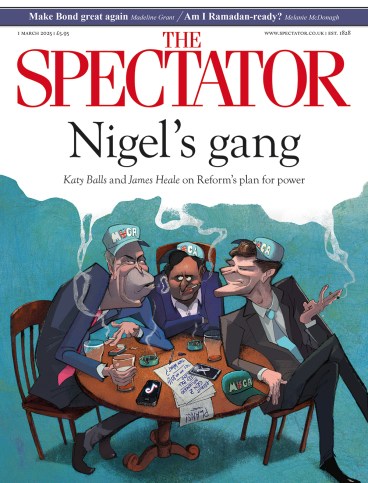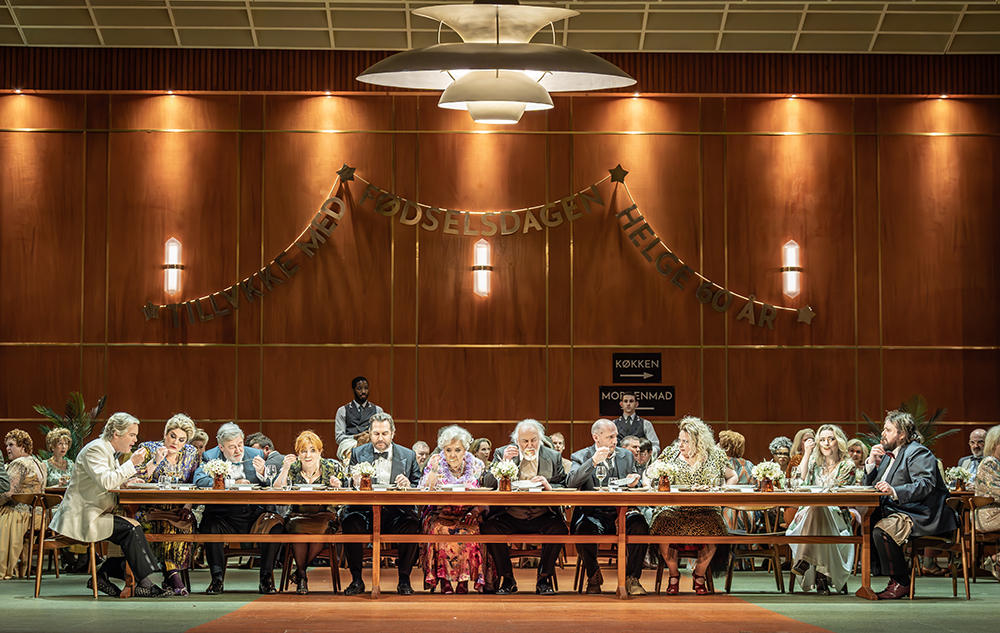
Mark-Anthony Turnage’s new opera Festen opened at Covent Garden earlier this month, and reader, I messed up. I broke my own golden rule with new operas: don’t do any homework, don’t try to memorise the plot, and whatever you do, don’t revisit the source material. The aim is to experience the new work on its own terms. That’s hard enough, given the PR onslaught that precedes any Royal Opera première – the way the classical establishment circles the wagons, and the unspoken consensus that certain living composers (including Adès, Benjamin and Turnage, though not Judith Weir, curiously) are simply too big to fail.
But no: I rewatched Thomas Vinterberg’s 1998 Dogme movie, twice, and it was the wrong decision. Inevitably, and unfairly, you cross-reference. Festen (spoiler alert) pivots on a revelation of child sexual abuse at a very public family gathering. If you know it’s coming, you’re steeled against it; worse, it can feel as if you’re being challenged to respond in a particular way. The composer and his librettist Lee Hall are defying you not to be moved. Does it even matter, any more, what the score does, and what the words say?
Where the film makes its impact in glimpses and flashes – a rapid-fire simulation of unvarnished objectivity – the opera spreads emotions like jam. There are fierce orchestral gestures, flights of heartfelt, melancholy arioso, and a bright arrival chorus that returns, transformed, as a slightly too neat closing gesture. Vinterberg somehow suggests complex hinterlands for a surprising number of characters; the opera inevitably focuses on fewer and leaves others feeling incomplete or unrealised. In the film, supernatural elements are brushed in so subtly that they might not be there at all. In Richard Jones’s staging at Covent Garden, a bloodied apparition rises out of a sofa.
It’s only right to say that other audience members were sincerely moved. A.N. Wilson, who survived abuse in his own childhood, wrote on his Substack that he found the experience ‘cathartic’ and Turnage’s music overwhelmingly powerful. Certainly, it’s a mature and often beautiful score – skilfully paced, with Turnage’s raw, bluesy trumpets infusing the whole thing with an air of passionate sadness. The performance and production were impeccable, and again, it felt as if the Royal Opera was challenging you not to be impressed by the sheer calibre of vocal firepower across an enormous cast.
Allan Clayton played the troubled son Christian as a hairy thundercloud of repressed rage, Stéphane Degout ran wild as his hyperactive lout of a brother and Natalya Romaniw vanished entirely inside their sister Helena. Gerald Finley, as the patriarch Helge, sounded as masterful and stylish as he looked, and when John Tomlinson made his droll interjections as Grandpa you could almost hear the audience purring. Jones, meanwhile, marshalled virtuoso crowd scenes and the sets, by Miriam Buether, suggested an international luxury hotel rather than the claustrophobic family business of the original.
I broke my own golden rule with new operas: whatever you do, don’t revisit the source material
Would that matter if you hadn’t seen the film? I wish I could say. I’d like to see Festen again, ideally in a production that roughed it up a bit; where the smaller roles seem less like cameos for star singers, and where Turnage’s climactic conga is more explosive, more visceral – in short, more dangerous – than it sounded in conductor Edward Gardner’s polished reading. When that happens, I promise not to rewatch the movie. And if, under those conditions, Festen hits the mark, we can all have a good laugh at how the cloth-eared critic misjudged a modern classic.
Thea Musgrave’s 1977 opera Mary, Queen of Scots hasn’t been seen in the UK since 1980, and it swept back on stage at English National Opera with thrilling force. Musgrave is a composer who thinks in big gestures and dark colours, and her opera is concerned with the holding and wielding of power. Above all, it deals with the clash of personalities between the naive, impulsive Mary – surely one of the meatiest soprano roles in postwar opera, sung with brilliant assurance by Heidi Stober – and her grim-faced subjects, portrayed by director Stewart Laing as a particularly murderous branch of the Ramblers’ Association. As her treacherous brother James, Alex Otterburn was lethally charismatic, and Joana Carneiro drove the ENO orchestra with steely command.
So why isn’t Mary, Queen of Scots performed more often? You could ask the same about most British operas. At least Musgrave (who turns 97 this year) was present to receive the cheers of a capacity audience. Still, the updating was perverse. Mary’s nobles wore anoraks and walking boots, and when they weren’t singing, the chorus spent much of their time erecting a marquee. Couldn’t ENO have dug out a few ruffs and swords? Ah, but if you stage a historical drama in period costume, modern audiences will feel alienated. That’s why Wolf Hall has been such a flop.







Comments